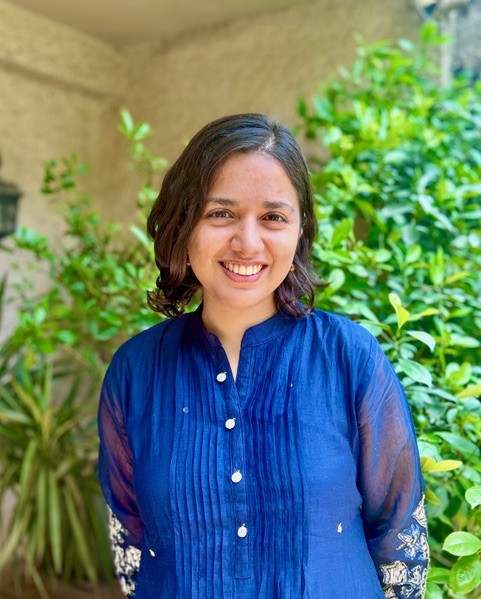Congratulations to Mrinalini Sisodia Wadhwa CC'24 on being named an Examination Fellow!
Every autumn, All Souls College, Oxford selects Examination Fellows, a position providing Oxford graduates or graduate students in the Humanities or Social Sciences with seven years of full funding. Examination Fellows are full members of the College's governing body, with a vote, a stipend or scholarship allowance if eligible for scholarship status, free board and single accommodation in College, and various other benefits. The College normally pays the University fees of Examination Fellows who are studying for degrees at Oxford. This year, two fellows were selected from a field of one hundred and fifty or more candidates.

Mrinalini Sisodia Wadhwa, CC'24
Credit: Renu Sisodia
Having grown up between New York, Chandigarh, and New Delhi, Mrinalini graduated from Columbia College as salutatorian with honors in History and Mathematics. She currently serves on the board of Columbia College Young Alumni. Her work has been recognized by the 2022 Taraknath Das Award in Asian Studies, 2023 North American Conference on British Studies Essay Prize, and 2024 Albert Marion Elsberg Prize in History, and her article on the political thought of Indian feminists is forthcoming in the Journal of the History of Ideas.
As an Examination Fellow at All Souls College, Oxford, Mrinalini hopes to pursue a doctorate in history and career as a historian, working on the intellectual and cultural history of Enlightenment and empire.
Reflecting on her achievement in being named an Examination Fellow, Mrinalini shared, "In many ways, this is a testament to the intellectual home I found at Columbia College. The Core and History seminars I took here were what first pushed me to think across different linguistic, religious, and political traditions, take intellectual risks, and reconstruct missed dialogues, all of which proved to be invaluable during the exam. I am especially grateful to my first history instructor at Columbia, Professor Susan Pedersen, and to my thesis advisors, Professors Emmanuelle Saada and Charly Coleman...This entire process might seem like a singular, solitary, experience, but in reality, it took a village, and it showed me that my clearest thinking has always happened in dialogue."